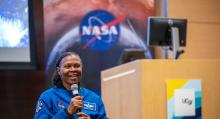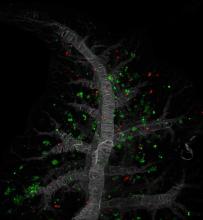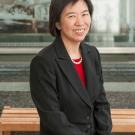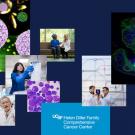News
UNICEF "Muted" on Tobacco Control for Children
The tobacco industry manipulated the renowned children’s rights agency UNICEF for more than a dozen years, from 2003 until at least 2016, during which time UNICEF’s focus on children’s rights to a tobacco-free life was reduced, according to previously secret documents uncovered by UC San Francisco
Considering Race in Breast Cancer Screening Recommendations
An article titled ‘ Race matters for breast cancer screening protocols,’ was published last month on AuntMinnie.com. The article highlights a study published online in JAMA Surgery that examined the age distribution of breast cancer diagnosis in the United States across race and ethnicity. The
Gene Mapping Lays Groundwork for Precision Chemotherapy
Despite the great successes of targeted cancer drugs and the promise of novel immunotherapies, the vast majority of people diagnosed with cancer are still first treated with chemotherapy. Now a new study by UCSF researchers using techniques drawn from computational biology could make it much
Jason Cyster Elected to American Academy of Arts and Sciences
UC San Francisco immunologist Jason Cyster, PhD, has been elected to the American Academy of Arts and Sciences, which honors exceptional scholars, leaders, artists, and innovators. Cyster is professor of microbiology and immunology at UCSF and a Howard Hughes Medical Institute Investigator. He is
Rising Stars: New Faculty Members Lead to New Discoveries at UCSF
Our members collaborate across the entire UCSF campus, from the various research labs to the clinical offices in each division and department. Through these collaborations, young physician-scientists are mentored and supported in order to make valuable discoveries that move the science forward and
UCSF Names First-Ever Chief Genomics Officer
In a move that underscores the increasingly important role of genomics in medicine, UC San Francisco has appointed Aleksandar Rajkovic, MD, PhD, as the first Chief Genomics Officer (CGO) of UCSF Health. His appointment, which follows a national search, is effective May 1. In this role, Rajkovic









